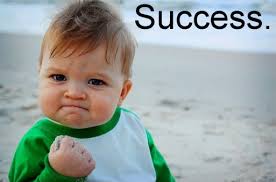This Wednesday at the Ideas Cafe, we are discussing more issues about competing choices.

We all feel for those who need help, whether it is someone encountering a spell of bad fortune, a student who is lagging behind the average, or just the down trotted in out society. It will be a very cold and impersonate community if we don't.
Who knows, we may be among them some day by sheer stroke of bad luck.
We can see and feel for their suffering and difficulty.
How about the brilliant students who excels in class without any help at all. Surely they can manage on their own while we take care of the ones in need. They are already so far ahead of the class average.

But how much better still will these good students be if we do spend some attention on them instead of leaving them alone. Or worse, will these bright minds get bored while we are tending to those lagging behind? Is a program for gifted children the answer and if so, is it getting the proper support in relation to what is assigned to learning disabilities?
Are we suffering from blindness to how brilliant these good students will be if we invest some time versus how bad the laggards already are at present?
Should our society as a whole support the achievers among us with some of our valuable resources now at some expense to our needy so that they can contribute even more to our society and allow us to have more resources to help those in need later? Will the Steve Jobs and Bill Gates of this world do more for us if we have more infrastructure, encouragement for them?
Help for the needy, investment on the promising; both are unending demands to pour our resources into without ever feeling that we have done "enough".
Our politicians would like us to think that they have done both with a fine balance while the demands from social welfare, education, research and development, and industry promotion are all saying they need more.
Other than continuing to do what we have done before, is there any other way of establishing the balance in these competing demands?
Is this a question of emotional pull on our compassionate heartstrings versus hard nosed investment economics? After all, in our own personal lives, we somehow managed to spend money on entertainment to sustain our sanity while we ignore some of the many humanitarian causes around us. We even manage to save some money as well!
Maybe comparison is the answer. In the 70s, the general health of the Canadian male was put to shame by comparison with the typical Swede 10 years older which resulted in a general awareness of the need for more exercise and better diet.

If we can evaluate an elusive quality like health by comparison, perhaps we can compare other illusive qualities that way?
What if we are all off the mark, and the blind is leading the blind? That the typical healthy Swede can be even healthier? That we can have a much much better society than others if we will put up with several years of welfare pain for more money to spend on the needy later on? Or the reverse, put up with a decade or so of economic hardship and risk of losing our brightest while we build a compassionate society and great place to live ?
